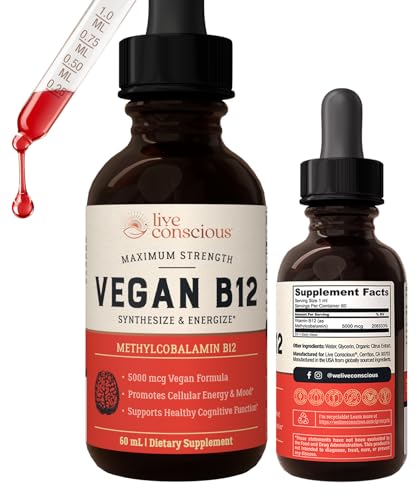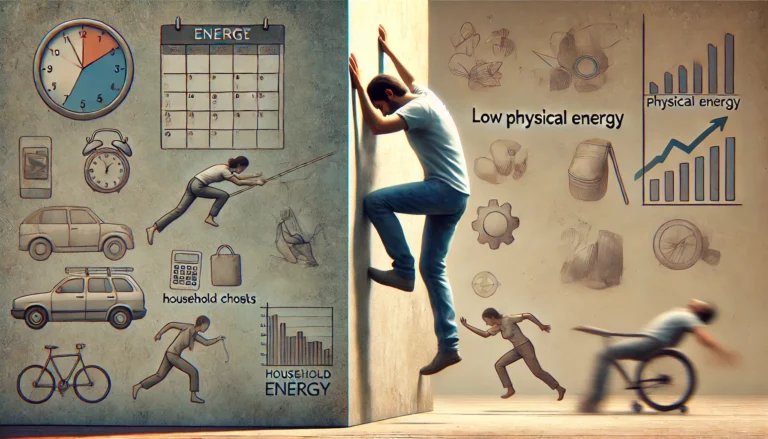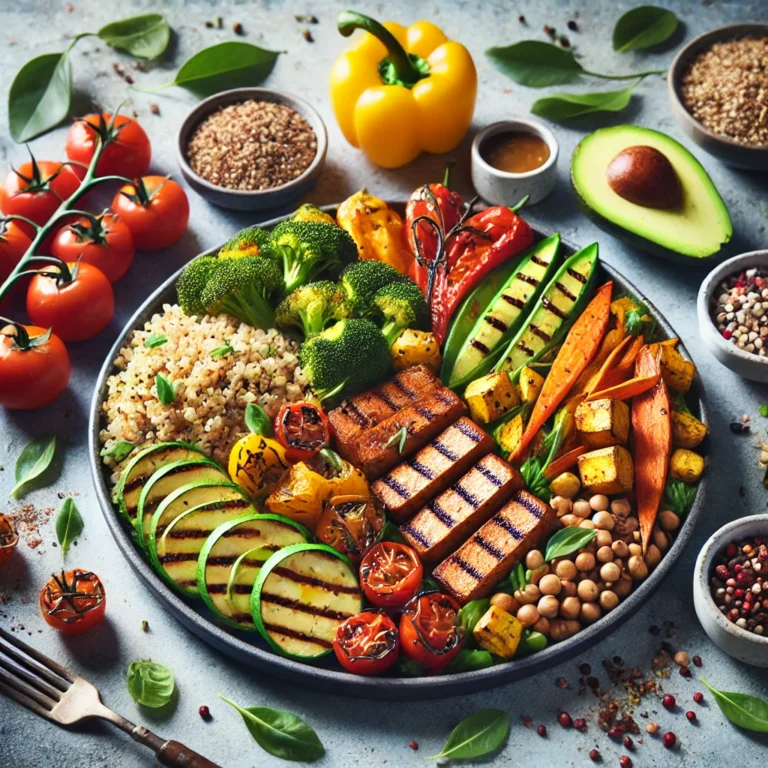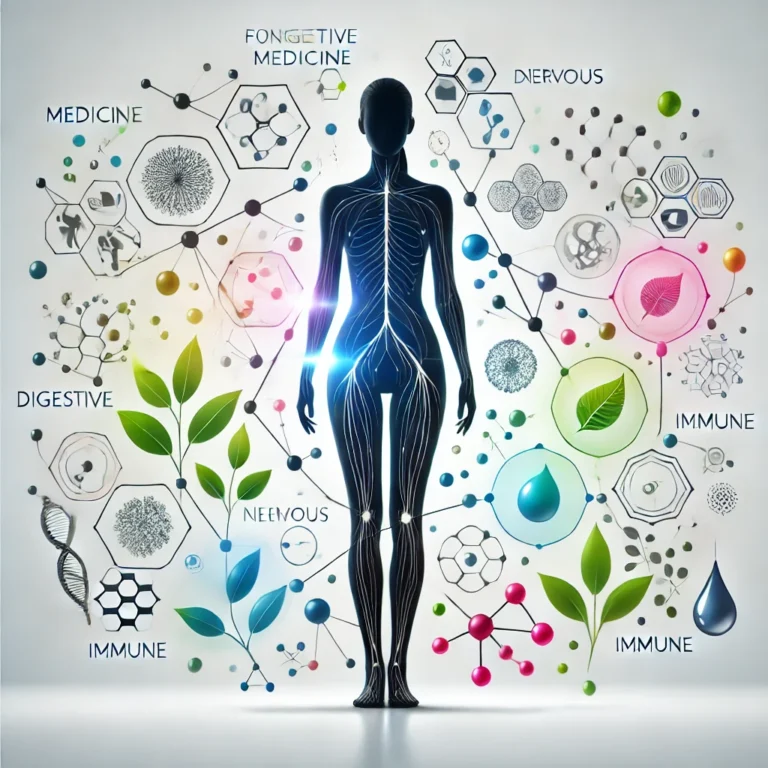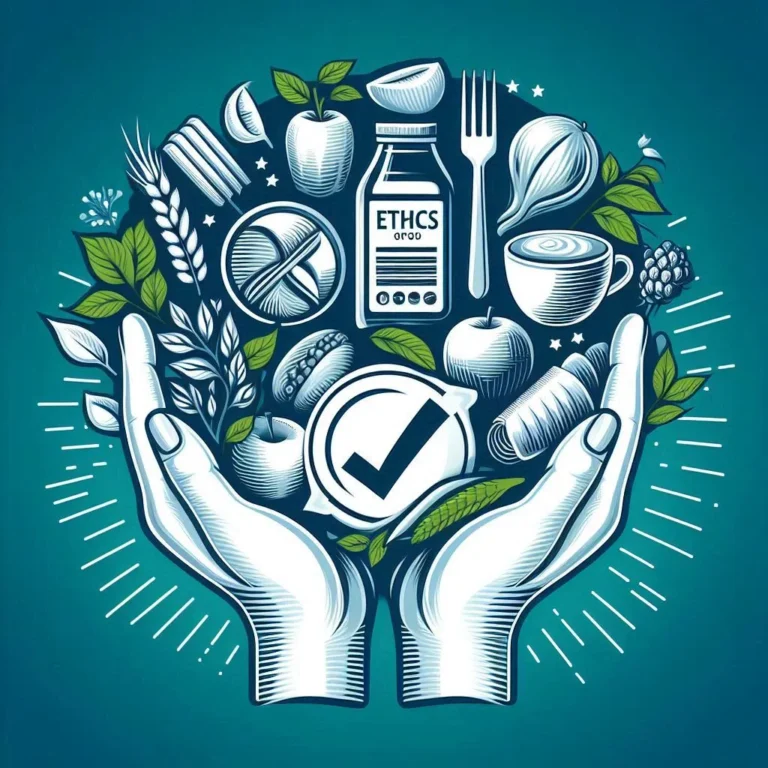*This post may contain affiliate links for which I earn commissions.*
If you’ve been feeling sluggish lately, struggling to keep up with the demands of your busy life, it might be time to take a closer look at your vitamin B12 levels. This often-overlooked nutrient could hold the key to unlocking a more energized, vibrant version of yourself. Vitamin B12 is often called the “energy vitamin” — and for a good reason. This essential nutrient plays a vital role in many bodily functions, from the production of red blood cells to maintaining nerve health and synthesizing DNA. When you have the correct amount of vitamin B12 in your system, it can be a genuinely transformative experience, greatly enhancing your physical vitality and overall sense of well-being.
What is Vitamin B12?
Vitamin B12, also known as cobalamin, is a crucial vitamin that plays a significant role in maintaining several essential bodily functions, yet our bodies cannot produce it naturally, which means it must be obtained from diet or supplements. Its structure is notably unique among vitamins—cobalamin contains a corrin ring with a central cobalt atom, making it the only vitamin to include a metal ion. This cobalt atom is what gives the name “cobalamin.” The presence of cobalt allows B12 to engage in complex biochemical reactions, which are critical for maintaining health.
Transformative Physical Vitality
Imagine waking up each morning with a spring in your step, ready to tackle whatever the day brings. That’s one of the remarkable benefits of having adequate vitamin B12. It helps your body convert the food you eat into usable energy, making fatigue and sluggishness a thing of the past. Many people report that once they correct a vitamin B12 deficiency, they experience a resurgence of energy—the kind that makes daily activities feel easier and even enjoyable.
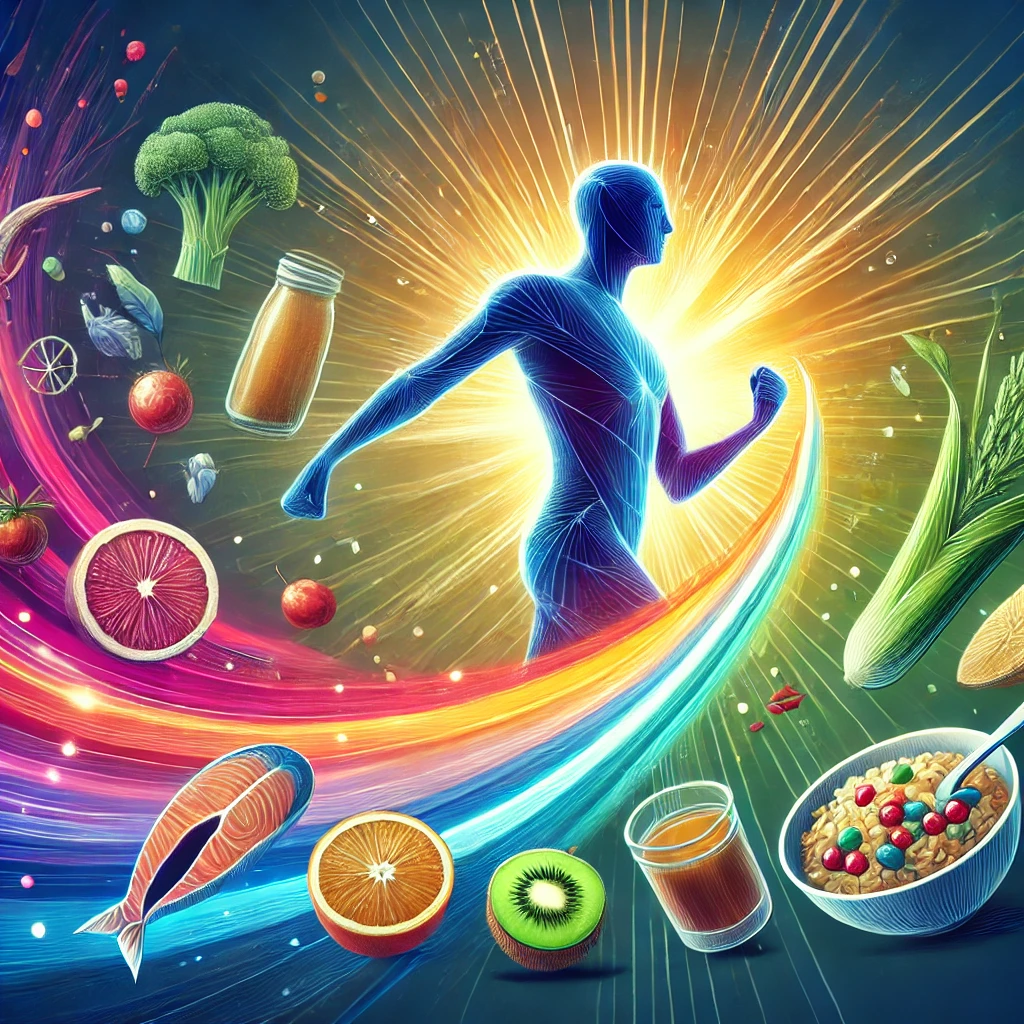
For those with low B12 levels, physical tasks can feel burdensome, and mental fog often follows. Correcting a deficiency can lead to significant improvements in mood and concentration as well, creating a ripple effect throughout your entire life—you feel more alert, exercise becomes more rewarding, and even stressful moments seem more manageable.
Dive into the world of nutrient-rich foods that can supercharge your B12 levels. From delicious seafood to fortified cereals, we’ll explore the top choices for ensuring you get your daily dose. Get ready to boost your energy and enhance your well-being—your body will thank you!
Why Adequate Levels Matter
Vitamin B12 deficiency is more common than you might think. Factors like diet, age, and digestive health can all affect how much vitamin B12 your body absorbs. Vegetarians, vegans, older adults, and people with certain medical conditions are especially at risk. The symptoms—such as tiredness, weakness, and even tingling in your extremities—are often subtle but can have a profound effect on quality of life.
Replenishing your vitamin B12 levels can feel like emerging from a fog into bright sunlight. As the correct amount of B12 starts circulating in your system, you may notice that physical activities become less daunting, your endurance improves, and the everyday aches of fatigue begin to fade away.
The Path to Vitality
Incorporating sufficient vitamin B12 into your diet can be as simple as eating more B12-rich foods like fish, meat, dairy, or eggs, or taking a quality B12 supplement. The results can be life-changing—no more struggling through workouts, no more mid-afternoon energy slumps. Instead, you’ll have the strength to engage fully in the activities you love, whether that’s hiking, dancing, or simply enjoying time with friends and family.
When you give your body the tools it needs, it responds with a kind of vitality that’s hard to describe until you’ve experienced it firsthand. Vitamin B12 may just be the spark you need to light up your life again, transforming the way you feel each and every day.
The Role of Vitamin B12 in Mental Health
Beyond physical energy, vitamin B12 also plays a critical role in mental health. A deficiency in B12 can lead to mood disturbances, including anxiety and depression. This is because B12 is involved in the production of neurotransmitters that regulate mood, such as serotonin and dopamine. Low levels of these chemicals can lead to feelings of sadness, irritability, and even hopelessness.
Many people who address their vitamin B12 deficiency report an improvement in their mood, a decrease in anxiety levels, and an overall uplifted sense of well-being. This improvement in mental health is not just about feeling happier—it can also mean improved focus, better memory, and an increased ability to cope with stress. In a world where mental resilience is more important than ever, having adequate vitamin B12 can make a significant difference.
How Vitamin B12 Supports Healthy Aging
As we age, our bodies become less efficient at absorbing vitamin B12, which makes it even more crucial to monitor our levels as we grow older. Vitamin B12 is essential for maintaining healthy nerve function, and a deficiency can lead to neurological problems, including memory loss and cognitive decline. For older adults, ensuring adequate B12 intake can help preserve cognitive function, reduce the risk of neurodegenerative diseases, and maintain overall brain health.
Moreover, vitamin B12 supports bone health by helping regulate homocysteine levels in the blood. High homocysteine levels have been linked to an increased risk of osteoporosis, particularly in older women. By keeping these levels in check, vitamin B12 can contribute to stronger bones and a reduced risk of fractures.
The Impact on Cardiovascular Health
Vitamin B12 also has a significant impact on heart health. Elevated homocysteine levels, often caused by a deficiency in vitamin B12, can increase the risk of cardiovascular diseases, including heart attack and stroke. Homocysteine is an amino acid that, in high concentrations, can damage the lining of arteries and promote the formation of blood clots. Vitamin B12, along with other B vitamins like B6 and folate, helps to convert homocysteine into a less harmful substance, thus protecting cardiovascular health.
By maintaining healthy vitamin B12 levels, you can help reduce your risk of heart disease and support a healthy cardiovascular system. This means better circulation, lower blood pressure, and a heart that is more capable of meeting the demands of your daily activities.
Vitamin B12 and Immune Function
Another crucial role that vitamin B12 plays is in supporting a healthy immune system. It helps produce white blood cells, which are essential for fighting off infections. People with low B12 levels often report getting sick more frequently, experiencing prolonged recovery times, and feeling generally unwell more often than those with adequate levels.
By maintaining optimal vitamin B12 levels, your immune system can function more effectively, helping you fend off common illnesses and recover more quickly when you do fall ill. This means fewer sick days and more days spent feeling healthy and vibrant.
Signs of Vitamin B12 Deficiency
Recognizing the signs of a vitamin B12 deficiency can be the first step toward transforming your health. Some common symptoms include:
- Fatigue and Weakness: Feeling tired, even after a full night’s sleep, is a hallmark of B12 deficiency. This fatigue can affect your ability to perform daily tasks and lower your overall productivity.
- Pale or Jaundiced Skin: A lack of B12 can cause a decrease in red blood cell production, leading to pale or yellowish skin.
- Shortness of Breath and Dizziness: Low B12 levels can result in anemia, which may cause shortness of breath, especially during physical activity.
- Tingling and Numbness: Vitamin B12 plays a role in nerve function, and a deficiency can cause nerve damage, leading to sensations of tingling or numbness in the hands and feet.
- Memory Problems: B12 deficiency can affect brain function, leading to forgetfulness or difficulty concentrating.
- Mood Changes: Irritability, depression, and anxiety can all be linked to low levels of B12.
If you recognize these symptoms in yourself, it’s important to consult with a healthcare provider. A simple blood test can determine your B12 levels, and from there, you can work on replenishing them through diet or supplements.
Getting Enough Vitamin B12
There are several ways to ensure you’re getting enough vitamin B12. The most common sources include:
- Animal Products: Vitamin B12 is naturally found in animal-based foods such as meat, poultry, fish, eggs, and dairy products. Including these in your diet can help maintain adequate levels.
- Fortified Foods: For vegetarians and vegans, foods fortified with vitamin B12, such as plant-based milk, breakfast cereals, and nutritional yeast, can be an important source.
- Supplements: Vitamin B12 supplements are widely available and can be an effective way to boost your intake, especially if you are at risk of deficiency. These supplements come in various forms, including tablets, sublingual (under the tongue) preparations, and even injections for those with severe deficiencies.
- B12 Injections: In some cases, healthcare providers may recommend B12 injections, especially for those who have difficulty absorbing the vitamin through food or supplements. Injections can quickly restore B12 levels and are often used in cases of severe deficiency.
Daily Recommended Intake
The recommended daily intake of vitamin B12 varies depending on age, gender, and life stage. For most adults, the recommended amount is 2.4 micrograms per day. Pregnant and breastfeeding women may require slightly more to support the health of their baby. It’s always best to consult with a healthcare provider to determine the right amount for you, especially if you have dietary restrictions or underlying health conditions. As people age, their ability to absorb vitamin B12 decreases due to reduced stomach acid production. To ensure adequate absorption, seniors may need to get vitamin B12 from fortified foods or supplements, as these forms are easier for the body to absorb.
Functions of Vitamin B12
Vitamin B12 wears many hats in the body, each as important as the other. Here’s what it does:
- Supports red blood cell formation: Like a factory manager, B12 ensures the efficient production of red blood cells, which are responsible for carrying oxygen throughout your body.
- Nerve function: This vitamin acts like an electrical technician, maintaining the health of nerve cells and forming the myelin sheath. This sheath is like the rubber coating on a wire, vital for transmitting signals quickly and accurately.
- DNA synthesis: Think of B12 as a book editor, helping transcribe the body’s genetic information to create new cells.
Symptoms of Deficiency
Ignoring Vitamin B12 can lead to significant health issues. Here’s how your body might signal it’s running low:
- Fatigue and weakness: Feeling like you’re dragging through the day? It might be due to diminished red blood cell production.
- Nerve problems: Tingling sensations, numbness, or even memory issues can occur because nerve function isn’t optimal.
- Mood changes: Vitamin B12 impacts brain chemicals. A lack can leave you feeling down or irritable.
Understanding Vitamin B12 is the first step in ensuring your body stays in top shape. Keep an eye on the signs and make sure you’re getting enough of this essential nutrient. Does this resonate with your experience of energy levels and mood swings? Let’s explore how to get more of this vital vitamin next.
Animal-Based Sources
Naturally, Vitamin B12 is found in animal products. If you’re a meat lover, you’re in luck because the following foods are packed with it:
- Beef: Particularly the liver, which is the crown jewel of Vitamin B12 content.
- Chicken: Easy to cook and versatile, making it a common staple in many diets.
- Fish and Shellfish: Salmon, tuna, and clams are all excellent choices.
- Eggs: A breakfast classic that comes with a B12 boost.
Including these in your diet not only helps with Vitamin B12 but also offers a good amount of proteins and other nutrients.
Dairy Products
Don’t forget about dairy! If meat isn’t your go-to, or you’re mixing things up, dairy offers an alternative:
- Milk: Pour it over your cereal or enjoy a glass with dinner.
- Cheese: Cheddar, mozzarella, and other varieties can add flavor and nutrients.
- Yogurt: A snack-friendly option that can be sweetened with fruits.
These options can easily fit into daily meals and contribute significantly to Vitamin B12 intake.
Fortified Foods
What if you don’t eat animal products? No worries—fortified foods are here to save the day! These are foods that have added nutrients, like Vitamin B12, to help meet your needs:
- Cereals: Start your day with a bowl of fortified cereal, often marked on the box.
- Nutritional Yeast: A vegetarian favorite, often sprinkled on salads or soups.
- Plant-Based Milk: Some almond or soy milk brands add in extra B12.
These foods are especially handy for those following a vegetarian or vegan lifestyle, making sure they don’t miss out on essential nutrients.
Considerations for the Elderly
As we age, our bodies become less efficient at absorbing Vitamin B12. It’s a bit like a leaky bucket—no matter how much B12-rich food you consume, some might escape you.
- Absorption Challenges: With age, our stomachs produce less acid. This makes it harder to extract Vitamin B12 from the food we eat. Our bodies might need a little help to get what they need.
- Preferred Sources: For older adults, easily absorbable forms of B12, like fortified foods or supplements, are often recommended. For instance, a glass of fortified orange juice or a morning vitamin pill can make a big difference.
- Regular Checks: Just as you’d check your car’s engine oil, regular check-ups with your doctor can ensure your B12 levels are in tip-top shape.
Supplement Options
Sometimes, getting enough Vitamin B12 can be a challenge, regardless of your diet. That’s where supplements come in handy.
- Who Needs Supplements?: Vegetarians, vegans, or anyone with absorption issues might benefit from supplementation.
- How to Take Them: Available in pills, liquids, or even sprays, they’re easy to include in your routine. Always follow the guidance of a health professional.
Remember, supplements are like a safety net—they’re there to make sure you don’t fall short of your nutritional needs. So whether you love a steak dinner or prefer a vegan salad, there’s a way to get your Vitamin B12.
Vegan Vitamin B12 Sublingual Liquid Drops by Live Conscious- Methylcobalamin Max Strength B12 5000mcg Formula – Vegan B 12 Vitamin Support Energy, Promote Memory & Aid Immune System – 60 Serving
$24.00 ($12.00 / Fl Oz)
Naturally-Derived Energy Support: Since Live Conscious Vegan B12 helps convert carbohydrates into glucose, it can lead to greater cellular energy production.*
Energy for a Good Mood: As B12 helps your body feel more energetic, it’s a holistic way to support your mood too.*
Methylcobalamin B12 | 5000 Mcg Vegan Formula: By using an under the tongue dropper, Live Conscious Vegan B12 is extremely fast to absorb.*
Immune Health: Vitamin B12 promotes the production of white blood cells, which is crucial when it comes to immune system support and protection.*
Earth-Friendly Formula: Live Conscious Vegan B12 is lactose-free, gluten-free, soy-free, non-GMO, and made in the U.S. from globally sourced ingredients. Expiration date is located at the bottom of the bottle.
Vitamin B12 for Special Diets
Vitamin B12 is a crucial nutrient, but getting enough of it can be tricky for some people, especially those with specific dietary needs. Whether you’re following a vegetarian, vegan, or simply aging gracefully, understanding how to secure enough Vitamin B12 is key. Let’s explore some thoughtful strategies for ensuring you’re covered.
Vegetarian and Vegan Sources
Finding Vitamin B12 in a plant-based diet is like solving a puzzle. Since B12 is primarily found in animal products, vegetarians and vegans need to be a bit more strategic. But don’t worry—there are ways to make sure you’re not missing out!
- Fortified Foods: Many plant-based milks, breakfast cereals, and nutritional yeasts are fortified with Vitamin B12. Think of them as your plant-based superhero, swooping in to save the day.
- Supplements: For those who want certainty, a B12 supplement can be a reliable sidekick. It’s a straightforward way to ensure you’re meeting your needs without scanning ingredient labels like a detective.
- Seaweed and Algae: While not always reliable, some types of seaweed and algae, such as nori, offer a bit of B12. It’s like finding a hidden treasure in your sushi!
“Vitamin B12 is crucial for the production of red blood cells and DNA, and it also supports the nervous system. It’s one of those vitamins that people don’t always realize they’re deficient in until it becomes a more serious issue.”
registered dietitian and nutritionist Ginger Hultin
Remember, regularly checking your Vitamin B12 levels is crucial if you’re on a vegetarian or vegan diet. A quick blood test can tell you if you need a little extra boost.
Key Takeaways About Vitamin B12 Food Sources
Here’s a quick summary of the best sources for Vitamin B12, so you can keep your levels healthy and strong:
- Animal Products: Meat, fish, and dairy are your main go-to options for B12. These foods are packed with the vitamin, making them ideal for carnivores and vegetarians who include dairy or eggs in their diets.
- Fortified Foods: For those who follow a vegan lifestyle, fortified cereals, plant-based milks, and nutritional yeast are excellent alternatives. They help bridge the gap when animal products are off the menu.
- Supplements: Sometimes, even with a good diet, supplements might be necessary, especially for certain age groups or those with specific dietary restrictions. A simple tablet can often make up for what you might miss.
Why Maintain Adequate Levels?
Keeping your Vitamin B12 levels adequate is more than just ticking a box on a health checklist. Low levels can lead to fatigue and a foggy mind, much like running a car without enough oil. Regularly including its sources in your diet is like a health insurance policy, ensuring your body operates smoothly.
Do you feel a bit more inspired to check what’s on your plate? Ensuring you have enough B12 doesn’t just help today; it’s an investment in a healthier tomorrow. Whether you’re a meat-lover, dairy enthusiast, or plant-powered warrior, finding the right balance is key.
By prioritizing these food sources, you’re not just feeding your body, but fueling your future.
Conclusion The benefit of Vitamin B12
Vitamin B12 is far more than just another nutrient—it’s a key player in your journey to better health, vitality, and well-being. From boosting physical energy to enhancing mental clarity, supporting healthy aging, and protecting your heart, the benefits of adequate vitamin B12 levels are truly transformative. If you’ve been feeling tired, mentally foggy, or generally unwell, checking your vitamin B12 levels could be the first step toward reclaiming your energy and vitality. By ensuring you get enough B12—whether through your diet, fortified foods, or supplements—you can experience the life-changing benefits of this incredible vitamin.Understanding where to get Vitamin B12 in your diet is crucial for keeping your body and mind in top shape. Think of it as refueling your engine with the right kind of gas—it keeps everything running smoothly.
Frequently Asked Questions Vitamin B12

